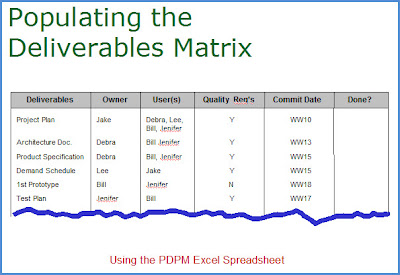 Welcome to the Performance Driven Project Management site. This blog provides details of the PDPM method and standards for ISPI certification. Select the links below to orient through the site for FAQs:
Welcome to the Performance Driven Project Management site. This blog provides details of the PDPM method and standards for ISPI certification. Select the links below to orient through the site for FAQs: What is PDPM (slides) (narrative)
Overview of PDPM Methods (video)
Observations of PDPM Effectiveness (Video)
Applications of PDPM (video)












